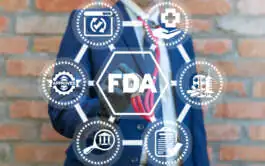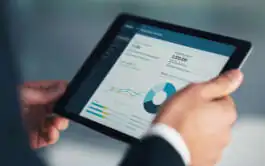The pharmacovigilance demands on the local affiliate can be overwhelming. There is a need for continuous oversight, for literature searches to identify individual case safety reports, as well as risk minimization measures, patient support programs and signal detection for other types of products, like medical devices.
Often, companies lack the resources at the local level to carry out these activities. This has led many companies to seek support from outsourcing partners. But, as panelists in a recent webinar discussed, there is a need to be clear about roles and expectations first. That includes understanding a company’s needs and aligning them with the growth strategy, knowing what the partner can deliver, being clear about what activities are in scope, and where collaboration should be prioritized.
Building the outsourcing partnership
According to panelists who spoke at the Navigating Local Pharmacovigilance Obligations in a Global Landscape webinar, by outsourcing day-to-day activities, such as literature searches, companies can focus their local resources on strategies behind the launch of a product and risk minimization activities.
However, not all outsourcing partnerships are created equal. So, what makes a good outsourcing partnership? What are those skills at the local level that companies look for?
In our experience, the role of the local affiliate is multi-disciplinary. Not only must they know local PV requirements, but they must also understand data privacy rules. They should have a good understanding of regulatory affairs in the country and region, and they should be able to support medical information activities, including supporting consumers and healthcare professionals with questions about the drug product.
“Having a lot of PV experience is obviously a first priority, but they should also have an idea of what’s happening in the other functions,” one panelist said. “This is especially important in smaller facilities where the need for broad knowledge and the ability to interact with other functions is key.”
While broader knowledge is advantageous, some areas are particularly important from a PV perspective, including medical, where safety information is a priority, regulatory, and in future anything related to data and digital initiatives, one panelist shared.
Another panelist agreed, adding that there might be managed access programs or, if medical is doing commercial patient access, where PV expertise is needed.
“Functions like commercial or market access are important for PV to connect with, because many programs impact the interaction with patients and healthcare professionals,” the panelist noted. “Those programs also need to be aligned from a safety perspective.”
Growing the skills of the local affiliate
The skills an outsourcing partner can bring at the local level are well understood by the panelists and many others in industry.
To retain and grow those capabilities, there needs to be a commitment to professional development and continuous learning. In addition to formal programs to help local PV professionals to grow, opportunities to develop include attending relevant industry events focused not only on PV activities but other related critical functions as well. This allows these local experts to connect with colleagues from across the industry and learn more from experts.
Local knowledge and a passion for what they do are capabilities that resonate with the webinar speakers.
“Local people are very passionate about their job, about pharmacovigilance, and about what’s happening in the country,” a panelist said. “Having people who can communicate well with other departments and understand how other functions impact on PV is key.”
“Having a robust global process that helps local affiliates minimize the administrative burden brings benefit on a large scale,” one panelist noted. “By outsourcing, what we’re seeking to do is unify or simplify our processes and, perhaps even more importantly, provide that support to the affiliates so they can integrate that expertise and those processes in their interactions with industry stakeholders, health experts, and so on. In this way, we learn from one another across the business.”
Realizing the benefits of outsourcing
Effective outsourcing partnerships hinge on clear roles, expectations, and a mutual understanding of local PV requirements and regulatory affairs. Investing in the professional development of local affiliates ensures that they possess the necessary skills and knowledge to excel in their roles. Ultimately, a well-structured outsourcing strategy not only enhances safety practices but also fosters collaboration across functions, benefiting the entire organization.
About the author:
José Miguel Rivas Romero is Program Manager, Service Line Lead for LPVS and Pharmacovigilance Expert, at PharmaLex. José Miguel has more than 10 years of experience in the pharmaceutical industry specializing in the design and implementation of local pharmacovigilance strategies across organizations.








